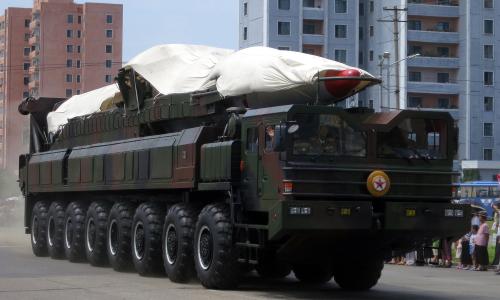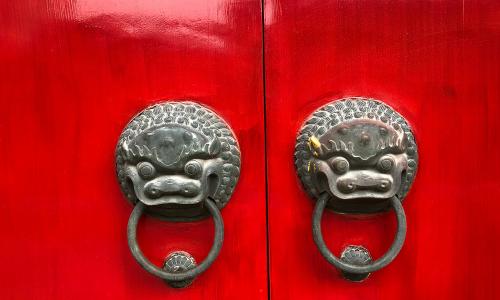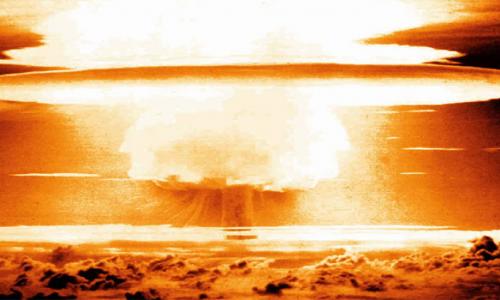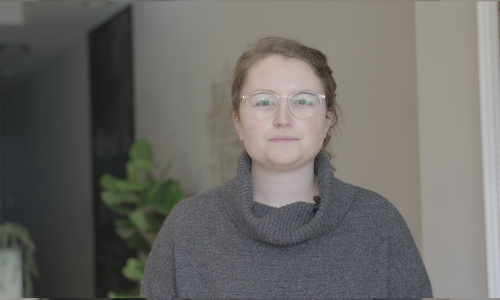Jess speaks with Oppenheimer biographer Kai Bird about one of Earth's most influential humans and his scientific and political legacies.
Transcript
That was Dr. J. Robert Oppenheimer speaking about the Trinity nuclear bomb test in 1945. It was the culmination of a massive United States wartime effort that put science at the forefront of the national conversation. The results of the weaponization of nuclear fission technology have been nothing short of catastrophic for people living downwind of the Trinity test site, and of course for those in Hiroshima and Nagasaki, the cities bombed by the United States at the end of World War 2.
With the new Christopher Nolan film Oppenheimer headlining at the box office, science is once again at the center of the national conversation. For 9 years after 1945 when the bombs were dropped, Oppenheimer, the father of the atomic bomb, was viewed as one of the world’s preeminent public intellectuals. That all changed when individuals with vendettas against Oppenheimer orchestrated a hostile security hearing and stripped him of his security clearance.
While this was devastating for Oppenheimer, it effectively froze scientists out of political activism for over 60 years. Speaking out politically killed Oppenheimer’s career, so what chance would lower-profile scientists have of preserving their own reputations if they were similarly attacked for their political efforts? It took the rise of climate change denialism and deliberate disinformation to push scientists to run for elected office and engage with politics in ways unheard of since before Oppenheimer’s public humiliation. Scientists were silenced in the political arena for more than 60 years.
I spoke with Kai Bird, the author of the definitive biography of Oppenheimer, American Prometheus, about the effects of Oppenheimer’s complicated legacy.
I’m your host Jess Phoenix, and this…is science.
Jess: I'm joined by Journalist, Historian, and Pulitzer Prize-winning Author Kai Bird. The new Universal Pictures movie "Oppenheimer," written and directed by Christopher Nolan, catapults science, the ethics of scientific discovery, and the place nuclear weapons hold in our world to the forefront of the public conversation.
And since Kai Bird has authored...I should say, co-authored the book "American Prometheus," which is considered pretty much the definitive biography on Robert Oppenheimer, I figured it would be a really special treat for our listeners to hear from Kai himself. So, you co-authored this definitive biography with Martin Sherwin. He passed away in 2021, so we obviously can't hear from him, but I was wondering, what was the genesis of this book.
Kai: Thank you for having me, Jess. This is fun to talk about the book, but to answer your question, well, Marty Sherwin started this biography in 1980.
He signed the contract, and he worked on it for 20 years. He just did an amazing amount of research over 150 interviews and went to archives in this country and abroad and accumulated 50,000 pages of archival documents. But he never started to write. He sort of got biographer's disease, which is, you know, when you're the biographer and you're just certain that there's one more archive and one more interview that you need to do before you can begin to write.
Finally, in 1999, he came to me and suggested that I should join him on his project. And Marty, he had a great sense of humor. He said, "Well, if you don't join me on this project, my gravestone is gonna read, 'He took it with him.'"
And if you're a quantum physicist, you're not gonna learn anything from this book, but you will learn a lot about Oppenheimer the man. And he's a fascinating figure. He's a mystery. He's a very complicated personality and a scientist who loved French poetry and the novels of Ernest Hemingway. And he loved horseback riding in New Mexico and was so interested in the Hindu scriptures that he learned Sanskrit so that he could read the Gita in the original. Anyway, he's a wonderful figure and quite complicated and...
Jess: Right. And so, this may be asking a lot, obviously, because you already wrote 700 pages on this exact thing, but would you be able to give us just a really broad sketch of why Oppenheimer occupies so much space in modern history, just kind of put him in context?
Kai: Yeah. Well, you know, as a young man in his 20s, he was on the cutting edge of quantum physics in the 1920s. And then he became a Berkeley physics professor after studying theoretical physics in Germany. And then, at the age of 38, he's selected by General Leslie Groves to become the scientific director of the Manhattan Project. And builds this secret city in the middle of nowhere in New Mexico called Los Alamos, and builds the gadget, the atomic bomb, in less than two and a half years. So, he's the father of the atomic bomb, the sort of iconic historical figure that signifies, you know, the dawn of the atomic age. But then, you know, he's a hero. In 1945, his image is put on the cover of "Time and Life," but then just nine years later, he's destroyed, humiliated in a kangaroo court where his loyalty to the United States is questioned, and he's eventually stripped of his security clearance.
And then this is all the trial transcripts as such, were leaked to the "New York Times," and he's publicly humiliated. You know, he goes from being America's most famous scientist and public intellectual on scientific issues to a non-entity, a pariah. And so, this is what's really fascinating about his life story, that it's, you know, the triumph of the invention of this atomic bomb that he was building precisely because he feared the Germans were winning the race to acquire this weapon of mass destruction in the midst of World War II. You know, then there's the tragedy of his downfall at the height of the McCarthy era, and he becomes, you know, the sort of chief celebrity victim of McCarthy witch hunts. Jess: I did read something where Christopher Nolan asserted that Oppenheimer is the most important human to ever live. And what do you make of that? And how did you like the movie?
Kai: Well, I think what Nolan means when he said that, is that, you know, Oppenheimer signifies the dawn of the atomic age. And that's very significant because we are still grappling, trying to learn how to live with the atomic bomb. And, you know, the story is not over, and it could still end tragically with Armageddon. Atomic weapons have not been used since Hiroshima and Nagasaki in 1945, but it's possible that they could be used again. And so, Oppenheimer's life story is extremely relevant, particularly since he, not only was he the father of the atomic bomb as such, you know, directing the project that invents this weapon, but he immediately afterwards begins warning about the dangers to humanity posed by this weapon of mass destruction.
Jess: Did you enjoy the adaptation of your work?
Kai: I don't wanna spoil it for viewers. I'll just say that I think it's a stunning cinematic experience, and it is indeed based on "American Prometheus," this biography that Marty Sherwin and I wrote on Oppenheimer. And I think it's historically faithful to the book and accurate. It's an amazing film. And finally, I guess, you know, aside from the sort of stunning cinema of this three-hour movie, I'd say that, you know, people are going to maybe go into the theater thinking that they're going to see a film about the atomic bomb. And then they're gonna go out realizing they've seen a biography, a deeply biographical portrait of the very mysterious man. It's a mystery story. Like, any good biography, it's a mystery story. And it's about the man, not the weapon. And I think it's, you know, just brilliant.
Jess: In your opinion, why haven't we seen any nuclear weapons used since the bombs were dropped on Hiroshima and Nagasaki?
Kai: Luck. Mainly just old-fashioned luck, because there have been some near misses, the Cuban Missile Crisis, a crisis in 1983 that is not very well known. And, you know, Oppenheimer himself warned in 1945, just 3 months after Hiroshima, he warned in a public speech in Philadelphia. He said that, "You know, you might think that this weapon is very expensive because it costs $2 billion in 1945 to produce, but it's actually very cheap. And any society, however poor, anywhere in the world, any country that chooses to acquire these weapons can do so. There are no secrets. You know, the physics is known. It's just an engineering problem, and that is known too, how to do it, and it's cheap." And so, you know, he was predicting, here we are with North Korea having an atomic bomb, and Iran is getting one, and India has one, and Pakistan has one. And indeed, it is something that, you know, proliferation is a serious problem. And we may, in the decades to come, find that more countries in the Middle East, for instance, will acquire these weapons, or more countries in Europe or Asia. And every time another country acquires a weapon of mass destruction, the possibility of their use increases. Jess: I wanted to ask for you on, as your personal understanding of science and government, World War II, and nuclear weapons, how did all that change for you from working on this book in particular?
Kai: You know, what made it compelling to Marty and me, you know, is the downfall that happened after the triumph. In fact, that there was an arc to this story that Oppenheimer himself, you know, was a very extremely enigmatic young man and had great ambivalence about what he was doing. And then, nine years after his triumph, he is humiliated in this McCarthyite kangaroo court. And that's what is just astonishing. It's an amazing story that this happened in America in 1954. But it suggests, looking back on it from our vantage point today in the Trump era, I would argue that the story is extremely relevant. It explains Donald Trump, the seeds of Donald Trump were planted during the McCarthy era, and we're now sort of reaping the consequences of that, all these many years later.
Jess: In my learning about Oppenheimer, it seems like his views evolved, his positions evolved as he understood situations on greater levels with more depth. So, would you call that an accurate assessment? And what prompted him to create, unfortunately, unwittingly, so many enemies who were really resistant to the idea that a scientist's views could evolve over time?
Kai: Right. Yeah. Oppenheimer had a tendency in his personality, he could be very patient and sweet with his students and with strangers that he encountered on the street. He was an extremely polite and dignified man, and yet he could, when confronted with people in authority or people who presumed to be on his level or presumed to know physics when they didn't, he could be extremely rude and cutting and arrogant. And so, he made quite a few enemies in powerful places, and most particularly, he alienated Lewis Strauss, who was a self-made millionaire businessman, who got himself appointed an admiral during World War II. Strauss presumed that he knew a lot about the Manhattan Project. He'd had some peripheral involvement in it during the war. And he got Dwight Eisenhower to nominate him as chairman of the Atomic Energy Commission in 1953.
And at the same time, Strauss had become chairman of the board of trustees at the Institute for Advanced Study in Princeton, and he recruited Oppenheimer to become director of the Institute in 1947. And thought that was a coup to be able to recruit the "Father of the Atomic Bomb" to come to Princeton. But they were like oil and water, they just clashed. It was bad chemistry. You know, Oppenheimer was of Jewish ancestry, but he'd been raised as a young boy in the ethical culture society. And he didn't really consider himself to be... You know, he certainly was not a practicing Jew, but Lewis Strauss was. Strauss was a member of a conservative temple in New York. And he took his Jewishness very seriously, and he didn't understand why Oppenheimer didn't. And Oppenheimer went out of his way to sort of be rude to Strauss and mocked him in a public senate hearing one day in 1948 or '49.
And then there were policy disagreements. So, Oppenheimer was always skeptical and a critic of the U.S. relying on nuclear weaponry as a defense. And he came out in 1949 after the Russians exploded their own atomic bomb. And there was a sort of wave of hysteria in America about how to respond. Oppenheimer opposed the development of the super, the hydrogen bomb. And I thought, you know, was arguing publicly...increasingly so publicly in '52, '53, that this was unnecessary. It was a waste of money. The hydrogen bomb was creating a weapon that could only be used on huge cities and not... You know, that it wasn't a military weapon. And Strauss considered this to be evidence of Oppenheimer's opposition to the hydrogen bomb.
Strauss considered this to be evidence of perhaps disloyalty or subversion and he dug into his FBI file. He had access to that kind of classified information as the chairman of the Atomic Energy Commission. From the FBI file, he knew all about Oppenheimer's left-wing activities in the 1930s. And so, he jumped to the conclusion that Oppenheimer was a danger to the national security state, a danger to the development of the hydrogen bomb, and maybe he was a spy. And so, Strauss actually orchestrated the 1954 security hearing that brought Oppenheimer down. And he did so in a very nefarious sort of conspiracy.
Jess: So, this kind of is a nice segue into talking about the growing distrust of expertise and scientists in general that we've seen in the U.S. over the last decade or so, but very much so during the previous presidential administration. It seems like this is happening quite a bit in the U.S. but also to a lesser degree around the world. This sort of expertise is not wanted or needed, and scientists aren't seen as the same kind of trustworthy figures that they were several decades ago. So, from your perspective, what are the lessons that we should be amplifying from Oppenheimer's, both his scientific innovations and from the tragedy of the end of his professional career as a government scientist? Kai: Yeah. Well, I think what happened to Oppenheimer in 1954 sent a message to scientists everywhere in the U.S. and around the world that if you are a scientist, you have to be very careful and beware of getting on the public stage and presenting yourself as a public intellectual with expertise because people can come after you. And it sent a message that scientists, you know, need not be trusted. And Lord, you can look back at what's happened during the recent pandemic, where public health officials, their views were questioned and their authenticity and honesty were brought into doubt. And I think, you know, the fact that this can be done so easily that so many Americans can be distrustful of scientists and of, you know, expertise. This is deeply rooted in our culture, and I think you can trace it back to what happened to Oppenheimer in 1954. You know, he at the time was widely respected and given a platform to talk about public issues. And today, I don't think you can go look around the country and see, you know, that there are very few scientists of that caliber who have a public standing. That, you know, scientists have sort of trained themselves to speak only about their very narrow lane, their expertise in a very narrow scientific sense. And yet we need these people who understand the world, a world in which we're drenched with technology and science. And these are precisely the people that can help us to figure out how to manage this world, how to live with not only the atomic bomb but now artificial intelligence. And they're exactly the kind of people that we should be listening to and encouraging them to participate in civil discourse. But instead, we leave that debate to elected politicians, who often don't have any expertise at all. So, it's a conundrum.
Jess: Yeah. And I mentioned to you before we started recording, that I had run for U.S. Congress in 2018 as a scientist, which garnered a lot of news coverage because it was seen as so unusual. And so, I think it's unusual because Oppenheimer's attack, the attack on him professionally had such a chilling effect on political activism by scientists. So, is it your view that scientists should be more engaged in politics and the public conversation today, in spite of what happened to Robert Oppenheimer?
Kai: Yes, absolutely. I think scientists should be encouraged to run for public office and to write op-ed pieces and, you know, help to explain to the general public the sort of scientific method, the process, the fact that, you know, all scientists are experimenting, that public health officials are constantly trying to look at the evidence. And, of course, they change their minds at times because there's new evidence. And, you know, there is no one truth, but there is a constant effort to understand the science and the physical world around us. And that takes, you know, the scientific method of testing and experimenting and being open to new evidence. And this seems to be a process that most Americans don't understand. And that makes it difficult for us to have a political conversation that's based on reality.
Jess: If you could direct listeners to one thing to get a real sense of the man himself, what would you point them towards?
Kai: I discovered sort of late in our research and writing that Anne Wilson Marks, who was Oppenheimer's last secretary at Los Alamos, was still alive. And so, I looked her up and she told me the following story. She said that one day she was walking to work with Oppenheimer, and this was in July of 1945, just after the Trinity test had successfully demonstrated the first atomic bomb.
They're walking together, and suddenly Oppenheimer is shaking his head and muttering to himself, "Those poor little people, those poor little people." And Anne stopped him and said, "Robert, what are you talking about? What are you saying?" And he looked at her sadly, and said, "Well, you know, the Trinity test shows that this gadget now works, and we know it's gonna be used on a whole city in Japan. And most of the victims of this weapon will be women and children and old men, civilians." That's a whole city because the weapon needed to be tested on a large enough target to show its strength, its destructive power. And so, he's thinking, you know, tragically, of what's about to happen to these poor little people. And so, I conveyed this story to Marty after I did the interview, and he managed to look up and realized that in the chronology, this conversation that Anne and Robert had in July of 1945 must have been during the same week that Oppenheimer had actually briefed some of the bombardiers who were gonna be on the airplane to drop the atomic bomb.
And so, he was instructing them actually exactly how to detonate the gadget at exactly the right altitude so that it would have the most maximum destructive power on all those poor little people. So, this is an astonishing man who can, you know, contain in his head these two thoughts. You know, in the same week, he can be doing his duty, carrying out his responsibilities as a scientist, conveying how to deploy this weapon. And at the same time, he can be worrying about the tragic human consequences of what he's doing. So, he's very conflicted. This is admirable because, you know, it gives him his humanity. So, he's an incredible figure.
Jess: We are the Union of Concerned Scientists and we are very concerned as one would be in this day and age. So I like to ask all of our guests, why are you concerned? Kai: Yes. Well, it's an issue that we should all be concerned about. And I hope that this film and the book, of course, will prompt people to have a new conversation about the importance of atomic weaponry and how we should be figuring out how to survive in the atomic era, and how to regulate these weapons of mass destruction. And also to reflect on the major and troubling issue of McCarthyism, you know, that plagued our country back in the 1950s and still does to this day.
Jess: I think that's a fair set of concerns there and very valuable for us to look at in this day and age. So, thank you so much for making time for the conversation and also for your work preserving vital parts of our shared human history. This is the kind of thing that should never be forgotten. So, I really appreciate you taking the time to do your work and to speak with me about it, Kai.
Kai: Thank you, Jess.



